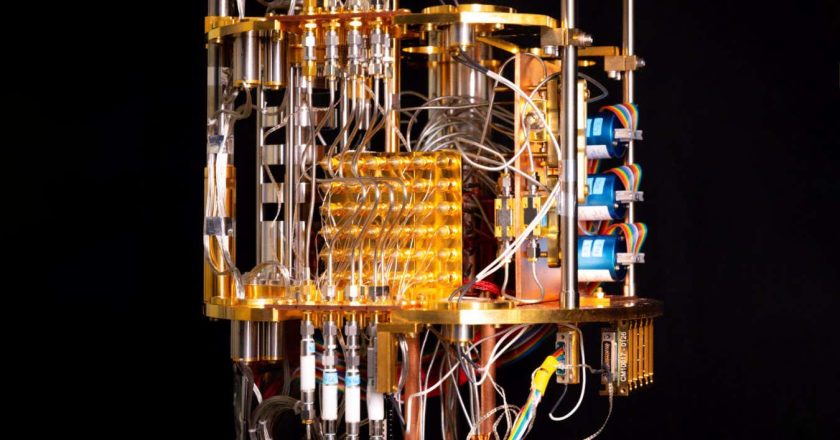Quantum computers are on the edge of revealing new particle physics
Quantum computers can simulate the behaviour of high-energy particlesGoogle Quantum AI, designed by Sayo Studio
Quantum computers are beginning to become powerful tools for studying some of the most fundamental forces in the universe – and some of the trickiest to understand. Two experiments have used them to pave a new way forward for nuclear and particle physics.
“We have this sort of grand scheme where we eventually want to do quantum computing for high-energy physics,” says Torsten Zache at the University of Innsbruck in Austria. “There’s a strong consensus that large-scale quantum computers will actually be able to solve problems that are otherwise intractable.”
He and his colleagues used a quantum computer to simulate how excited particles – those with lots ...




